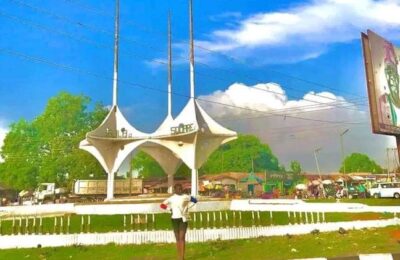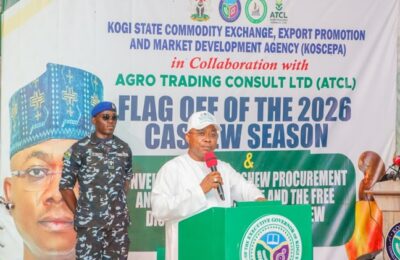In the heartland of Kogi East—where Igala drums used to summon men of valour, where ancestral shrines once blessed leaders with wisdom, and where community development used to be a sacred trust—politics has now been reduced to cosmetics. We have being wailing yet every where is silent.
Is it the fear of Alhaji Yahaya Bello or Ododo that is the beginning of wisdom at play?
From Idah to Ankpa, from Dekina to Olamaboro, the people no longer measure leadership by legacy, but by the sharpness of agbadas, the glamour of birthday fliers, and the loudness of rented praise singers. This is not just a decline—it is a dangerous delusion.
In today’s Kogi East, politics has become a catwalk. Our leaders no longer tread the path of our fathers who built bridges of trust, schools of excellence, or hospitals of hope. Instead, they showcase themselves like beauty contestants—glittering in white lace, airbrushed on posters, kneeling in churches for cameras, dancing in funerals for clout. Meanwhile, rural roads rot, teachers cry, farmers pray, and youths escape through drugs, crime, or despair.
A retired teacher from Anyigba put it bluntly: “Our politicians are now more concerned about how they look than what they do. They confuse presence with purpose, and forget that hunger cannot be filtered.” What a tragedy! Once upon a time, Igala elders would say, “The fire meant to cook food should not be used to entertain dancers.” But today, our political fire burns only for show, not for substance.
They host empowerment programs where the camera men are more than the beneficiaries. They distributes one motorcycle tyres or two wheelbarrows and five sewing machines, then flood the airwaves with it as if they’ve conquered poverty. They rent halls in Abuja to launch books about themselves, while the school in their village hasn’t seen chalk nor desks in months. They pay bloggers to write about them, pay spiritualists to protect them, pay praise singers to defend them—but not a single Kobo is spent on policies that uplift the poor.
One senator recently spent more on his birthday celebration in Lagos than his entire constituency budget for water provision. Yet he poses in traditional attire with elders and expects the gods to endorse his mockery. According to Inah Stephen, “A leader who shines on posters but casts shadows in governance is nothing but a thief of time.” And indeed, our time is being stolen. Time to build. Time to heal. Time to raise a generation of thinkers, not tinklers.
In Dekina, a local government chairman was celebrated for painting a roundabout. The same town has no single functional primary healthcare centre. In Idah, a House of Assembly member donated football jerseys to five youths and organized a “thanksgiving” for it. In Ankpa, a politician sponsored a billboard campaign calling himself “the redeemer,” yet local artisans cannot even access microloans. The irony is not lost on the people—it is only masked in silence, bribed with rice, and defended by those still under the illusion of tribal loyalty.
These are not isolated events. They are a pattern—one that reveals a tragic abandonment of Igala values. The kind of values that produced men like Dr. Stephen Achema, who would give his last naira to keep a student in school. Or the kind of spirit that dwelt in Ata Ameh Oboni, who laid down his crown rather than bow to injustice. These were men who wore simplicity as a crown, not those who wear designer clothes while ignoring the cries of Ogbabede, Ejule, or Abejukolo.
This is the rise of cosmetic politicians in Kogi East—image merchants, not servant leaders. They attend crusades but mock the cross. They read Psalms on podiums but ignore Proverbs in action. They call for prayers before campaigns, but forget the people once they win. Bishop David Abioye once warned, “When the cloak of religion covers the rot of corruption, God Himself will tear it apart.” Are we not now at that point?
The sad part is how we, the followers, have enabled this showmanship. We celebrate mediocrity because he “comes home.” We ignore corruption because he “sponsored our wedding.” We sell our votes because he “gave our church microphone.” And so, bad leaders don’t just happen—they are manufactured by broken values. We have become a people more concerned with who wears what, than who builds what.
But hope is not lost.
Across the hills of Kogi East, a new cry is rising. Youths are beginning to ask hard questions. Communities are whispering ancient truths. Some pastors, imams, teachers, and elders are finally realizing that image cannot fix Idah water, and makeup cannot mend Okpo roads. They’re remembering that Igala ni’ogwu (The Igala has medicine)—medicine of wisdom, unity, and spiritual truth.
We need a new generation of leaders—watchmen, not showmen. Men who, like Prophet TB Joshua said, “speak less, do more, and pray in secret for the burdens of their people.” Men whose photos are rare, but whose footprints are everywhere. Men who carry the burdens of Anyigba, Olamaboro, and Ofu not on branded vests, but in burning hearts.
Let us raise such men. Let our churches stop honouring looters. Let our communities stop celebrating empty noise. Let us stop trading our destinies for shawarma and souvenirs during campaigns. Let us break this mirror of deception. For as the Igala say, “The dog that follows a dancing masquerade will miss the meat behind the house.”
We must remember: leadership is not a costume. Governance is not a carnival. And our ancestors did not shed blood so we could become a generation of blinded dancers clapping for painted men.
Let Kogi East rise again—not in colour, but in content. Not in choreography, but in character. Not in concerts, but in courage. For the real beauty of leadership is not in filters, but in fruits. And the day we choose substance over style, truth over trend, and progress over propaganda, that will be the day Igala will rise again.
Let the masquerade of cosmetics fall. Let the face of true leadership be unveiled. And let the land heal.
The storm must not drown the voice of the wise.
– Inah Boniface Ocholi writes from Ayah – Igalamela/Odolu LGA, Kogi state.
08152094428 (SMS Only)




